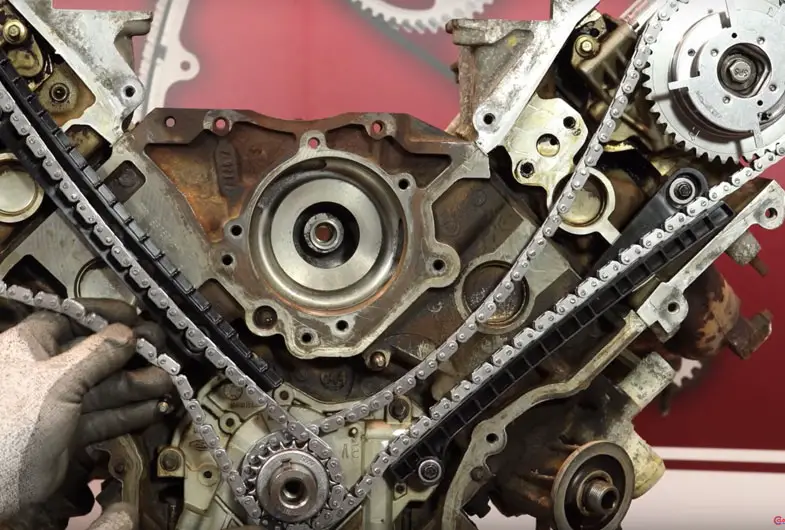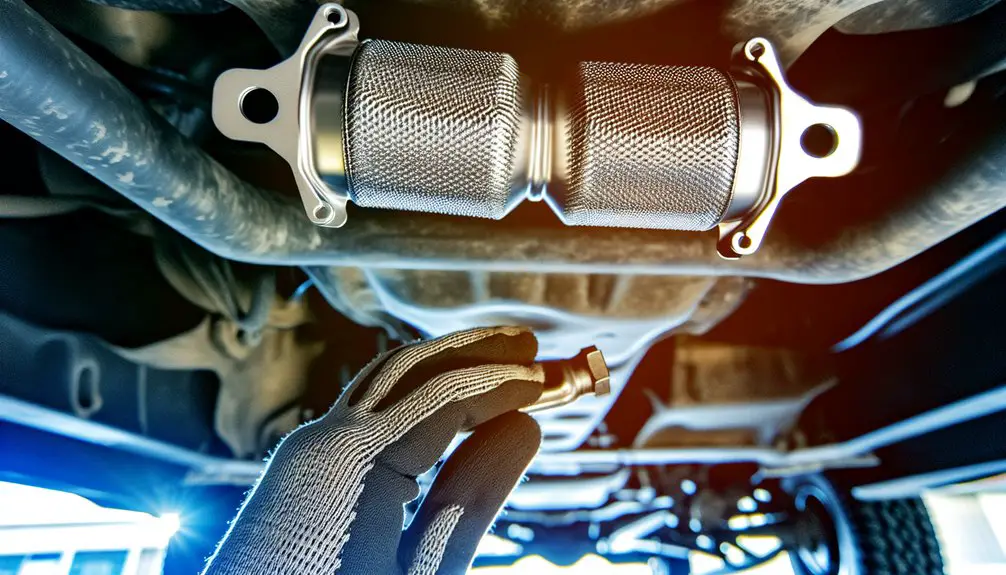When you're considering the scrap value of a 2001 to 2005 Ford F150 catalytic converter, it's crucial to understand the factors that influence its worth. The presence of precious metals like platinum, palladium, and rhodium plays a significant role, and market fluctuations can lead to varying prices. You might be surprised by how much these components can fetch, but knowing where and how to sell them can make all the difference. What strategies can you employ to ensure you get the best deal possible?
Key Takeaways
- Scrap prices for 2001-2005 F150 catalytic converters vary based on platinum, palladium, and rhodium content, impacting overall value.
- Market demand and supply dynamics significantly influence the scrap prices for these catalytic converters.
- Generally, 2006 F150 models have higher scrap values; research specific model values for the best pricing.
- Cleaning and documenting the condition of converters can enhance appeal and increase potential offers from scrap yards.
- Calling multiple scrap yards for quotes ensures competitive pricing and maximizes profit from scrap sales.
Understanding Catalytic Converters
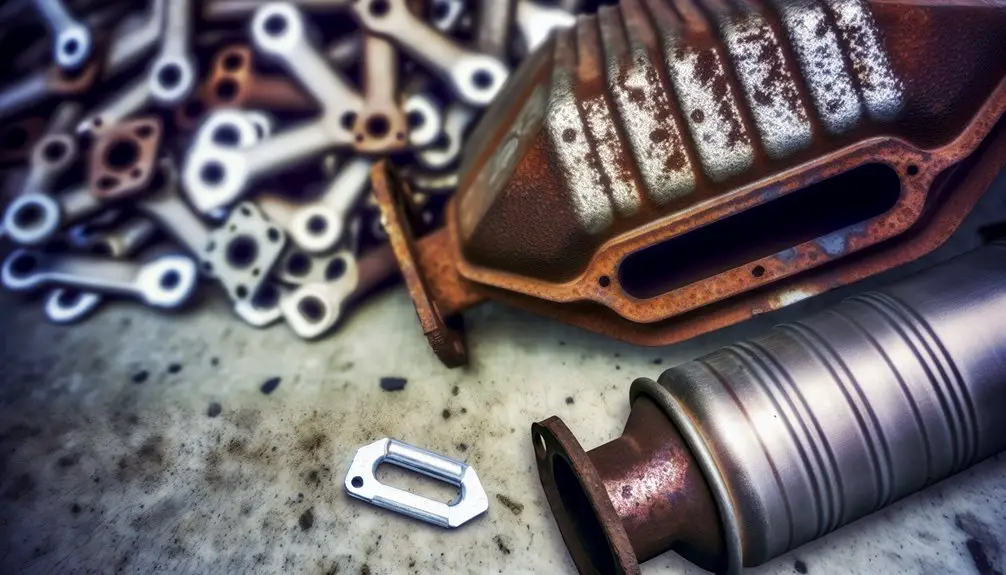
Catalytic converters play a crucial role in modern vehicles, including the popular Ford F150, by reducing harmful emissions and improving air quality. Understanding catalytic converter functionality is essential for any vehicle owner.
When exhaust gases flow through the converter, a chemical reaction occurs that transforms harmful pollutants like carbon monoxide and nitrogen oxides into less harmful substances, such as carbon dioxide and nitrogen.
The history of converters dates back to the 1950s, when engineers first sought solutions to combat growing air pollution from automobiles. Over the decades, advancements in technology have refined their design and efficiency, making them vital components in meeting stringent emissions regulations.
In your F150, the catalytic converter not only contributes to a cleaner environment but also enhances engine performance by optimizing exhaust flow.
If you ever need to replace or repair this component, understanding its functionality can help you make informed decisions about repairs or upgrades.
Importance of Scrap Prices
Understanding scrap prices is crucial for anyone involved in the automotive industry, especially when it comes to catalytic converters.
Fluctuations in market demand can significantly impact your profits, while recognizing the economic benefits of recycling can lead to smarter financial decisions.
Plus, being aware of the environmental impact of your choices enhances your role in promoting sustainability.
Market Demand Fluctuations
In recent years, fluctuations in market demand have significantly impacted the scrap prices for F150 catalytic converters. As you may know, the value of these converters isn't static; it responds to market volatility driven by various factors, including global economic trends and regulatory changes. When demand for raw materials rises, scrap prices tend to follow suit, encouraging more sellers to enter the market.
Understanding supply dynamics is crucial here. When the supply of scrap catalytic converters increases—perhaps due to more vehicles being scrapped—the price may drop if demand doesn't keep pace. Conversely, if manufacturers are struggling to source the necessary materials, you might see a spike in prices as buyers compete for limited resources.
This interplay between demand and supply not only affects your potential profits from selling scrap but also reflects larger trends in the automotive and recycling industries.
Staying informed about these market shifts can help you time your sales for maximum profitability. By paying attention to both local and global factors, you can make savvy decisions that align with the current market climate.
Recycling Economic Benefits
The economic benefits of recycling scrap materials, particularly for F150 catalytic converters, can't be overstated. When you participate in recycling programs, you're not just helping the environment; you're also tapping into significant economic incentives. The precious metals found in catalytic converters, like platinum, palladium, and rhodium, can fetch high prices on the scrap market.
By recycling these components, you can turn what would be waste into cash, making it a financially savvy decision. Moreover, the demand for these metals continues to rise due to their critical role in automotive manufacturing and emission control.
This growing demand means that scrap prices can be favorable for those who recycle their catalytic converters. As you engage in recycling programs, you also contribute to the local economy. These programs often create jobs and support local businesses, further amplifying the positive economic impact.
Environmental Impact Awareness
While you might primarily think of scrap prices in terms of financial gain, it's essential to recognize their significant environmental implications as well. When you recycle materials like catalytic converters, you're actively participating in sustainable practices that reduce the demand for new resources. This is crucial in a world where environmental regulations are becoming increasingly stringent, pushing industries to minimize their ecological footprints.
By understanding the scrap prices of catalytic converters, you're not just measuring profit; you're also gauging your contribution to a healthier planet. The precious metals found in these converters, such as platinum, palladium, and rhodium, can be recycled and repurposed, reducing the need for mining and the associated environmental degradation.
Each time you choose to scrap rather than discard, you help decrease pollution and conserve natural resources. Moreover, as awareness of environmental issues grows, many consumers are seeking out companies that prioritize sustainability.
Factors Affecting Scrap Value
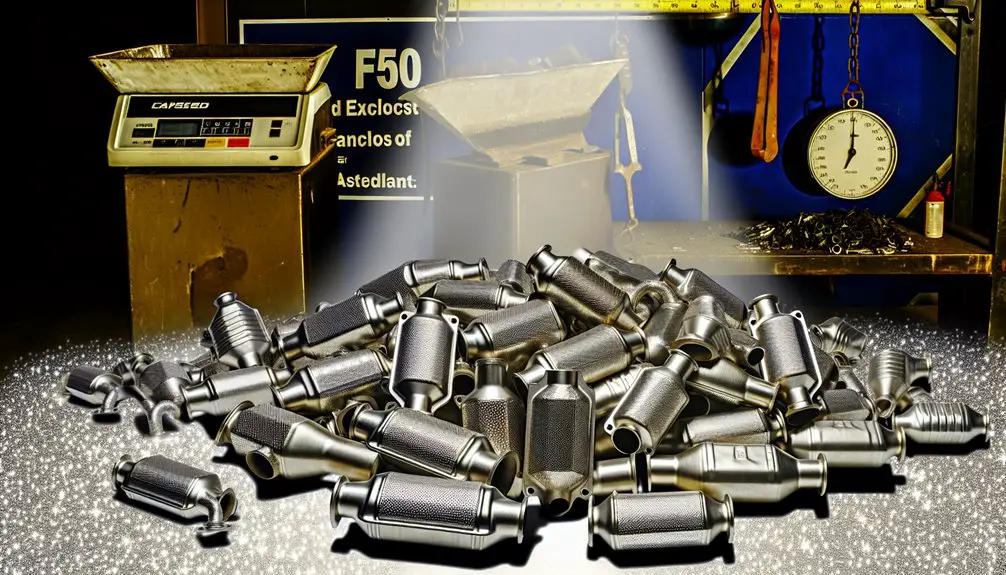
When you're considering the scrap value of your F150's catalytic converter, several key factors come into play.
The quality of metal content, current market demand trends, and the overall condition of the converter can significantly influence what you'll get in return.
Understanding these elements can help you make informed decisions and maximize your scrap profit.
Metal Content Quality
Understanding metal content quality is crucial for determining the scrap value of an F150 catalytic converter. The value largely hinges on the metal purity and alloy composition within the converter. High-purity metals like platinum, palladium, and rhodium are the primary catalysts that enhance the converter's effectiveness and, consequently, its scrap worth.
When you assess the scrap value, you should consider the percentage of these precious metals; higher concentrations directly correlate with greater value.
Additionally, different manufacturers use varying alloy compositions, which can impact the overall quality. For instance, converters from certain models may contain a richer blend of high-value metals.
It's essential to know that not all catalytic converters are created equal—those with a higher metal purity will typically fetch a better price.
To maximize your return, you should research the specific model of your F150 and its expected metal content. By understanding these factors, you can make more informed decisions when selling your catalytic converter, ensuring you get the best possible price for its scrap value.
Market Demand Trends
The value of your F150 catalytic converter isn't just tied to its metal content quality; market demand plays a significant role as well. Understanding market dynamics is crucial for gauging how much you can expect to get for your scrap. Factors such as global supply chains, fluctuations in the automotive industry, and trends in environmental regulations can significantly impact demand for catalytic converters.
For instance, when the automotive sector thrives, there's typically a higher demand for replacement parts, including converters. Conversely, during economic downturns, demand may drop, leading to lower scrap prices. Price forecasting relies on these shifting market conditions, making it vital for you to stay updated on industry news and market reports.
Moreover, the rise in electric vehicles affects traditional vehicle parts, including catalytic converters. As more consumers shift towards greener alternatives, the demand for traditional parts may fluctuate.
Condition of Converter
Assessing the condition of your F150 catalytic converter is crucial, as it directly influences its scrap value. Several factors come into play, including the converter's lifespan and maintenance history.
If you've kept up with regular maintenance, you're likely to have a converter that's in better shape, which can significantly boost its scrap value. A well-maintained catalytic converter typically has a longer lifespan, allowing it to retain more of its precious metals, like platinum, palladium, and rhodium.
Conversely, if your converter shows signs of damage, such as cracks or excessive wear, its value drops. Even minor issues can indicate deeper problems, prompting potential buyers to offer less.
Moreover, the overall appearance matters. A clean and intact converter suggests it's been cared for, making it more appealing to scrap buyers. If you're considering selling, document any maintenance performed, as this history can help you negotiate a better price.
Ultimately, taking care of your converter not only extends its life but also maximizes its scrap value when the time comes to sell. So, stay proactive with maintenance to ensure you get the best return on your investment.
Precious Metals in Converters
Catalytic converters are treasure troves of precious metals, crucial for their role in reducing harmful emissions. When you think about the materials contained within these converters, you'll find key metals like platinum, palladium, and rhodium. Each of these precious metals plays a significant role in catalyzing chemical reactions that convert toxic gases into less harmful substances.
The market valuation of these metals can fluctuate dramatically, influenced by factors such as supply and demand, mining outputs, and global economic conditions. For instance, palladium has seen substantial price increases in recent years, often making it more valuable than gold. This volatility can affect your potential return when scrapping an F150 catalytic converter.
Understanding the composition of your converter isn't just interesting; it's essential if you're looking to optimize its scrap value. You'll want to know how the concentration of these precious metals impacts the overall worth of your converter.
Average Scrap Prices Overview
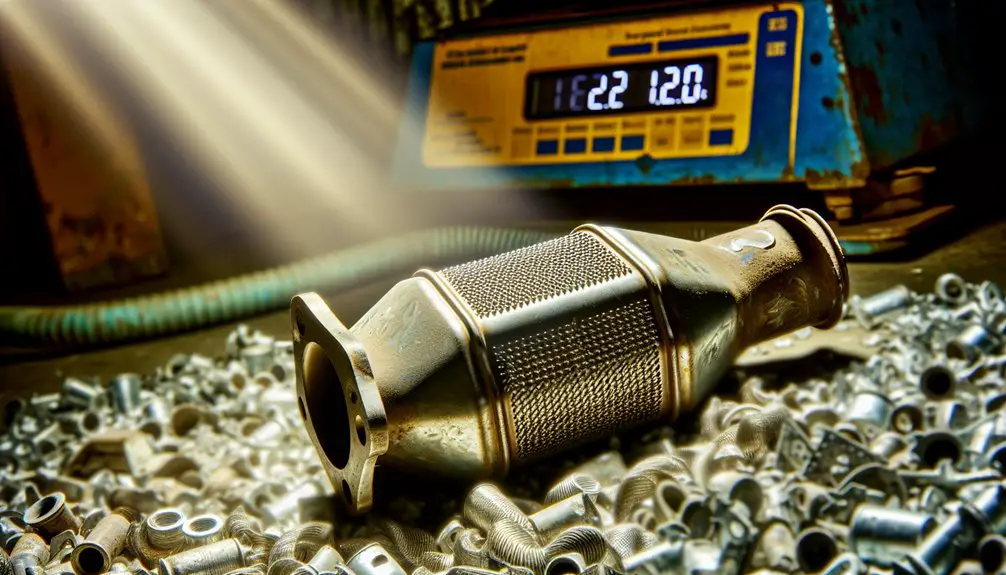
Scrap prices for F150 catalytic converters vary based on several key factors, including the current market demand for precious metals and the specific characteristics of each converter type. Understanding these factors can help you gauge potential earnings from recycling your converter.
Different catalytic converter types play a significant role in determining scrap value. Generally, converters with higher concentrations of precious metals like platinum, palladium, and rhodium tend to fetch higher prices. For instance, some converters from the F150 series might contain unique alloy blends that influence their market value.
When you think about scrap pricing strategies, it's crucial to stay updated on market trends. Prices can fluctuate based on global supply and demand, making timing essential. You might find that selling your catalytic converter during a spike in precious metal prices can significantly increase your profit margins.
Additionally, knowing your converter's specs—like the manufacturer, model, and year—can help you negotiate better prices with scrap yards. By staying informed and strategic, you can maximize the return on your F150 catalytic converter.
Specific Models and Values
When it comes to valuing specific F150 catalytic converter models, you'll find that each one holds a unique position in the market. Different F150 models, such as the 2004-2008 and the 2011-2014 versions, often have varying scrap values due to factors like precious metal content and demand.
For instance, the 2006 F150 catalytic converter typically fetches a higher price due to its platinum, palladium, and rhodium composition. If you own a newer model, like the 2021 F150, you might also see attractive scrap values, as these converters often incorporate advanced materials that enhance their worth in the recycling market.
Conversely, older models may have lower values primarily because of their diminished demand or reduced metal content.
It's crucial to research the specific scrap values associated with your F150 model, as these can fluctuate based on market conditions. You'll want to stay informed about the latest trends to maximize your return.
Where to Sell Your Converter
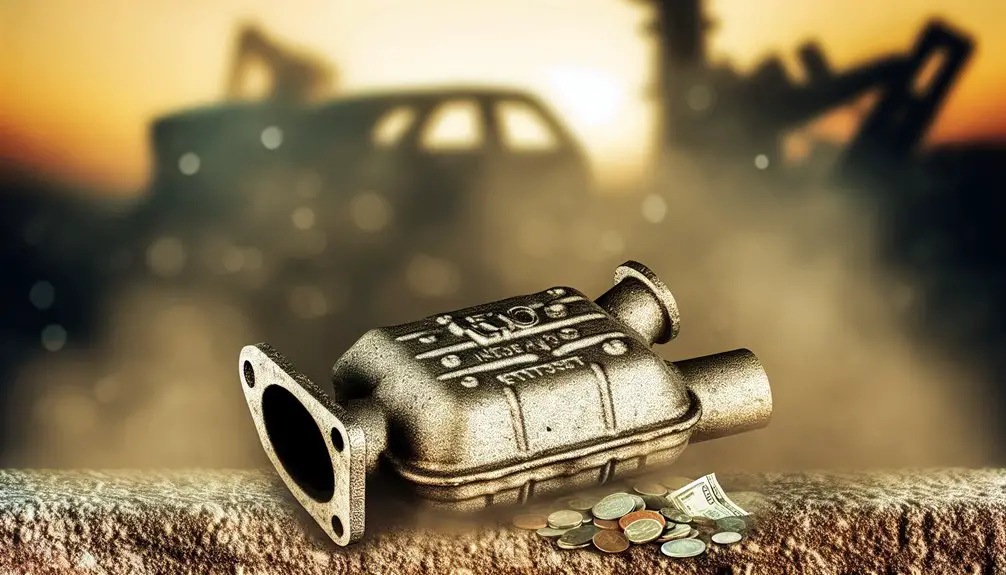
If you're looking to sell your F150's catalytic converter, knowing where to go can significantly influence your profit. One of the best options is to explore catalytic converter marketplaces, which specialize in buying and selling these valuable components.
These platforms often provide competitive pricing and a wider audience, ensuring you get the best possible deal. Additionally, many of these marketplaces simplify the selling process by offering clear guidelines and quick transactions.
On the other hand, local scrap yards can also be a viable option. They typically buy catalytic converters and can offer you cash on the spot.
However, keep in mind that prices at scrap yards may vary depending on their current demand and the specific converter you have. It's wise to call ahead and ask for quotes from multiple local scrap yards to ensure you're getting a fair price.
Ultimately, whether you choose a catalytic converter marketplace or a local scrap yard, doing your research and comparing offers will help you make the best decision.
Knowing where to sell your converter can maximize your returns and make the selling experience more rewarding.
Tips for Maximizing Profit
Maximizing profit from your F150's catalytic converter requires a strategic approach.
Start by focusing on converter identification. Different models contain varying amounts of precious metals, which significantly affect their scrap value. Research the specific type of converter your F150 has, as some are worth much more than others.
Next, employ effective selling strategies. Gather as much information as possible about current market prices and trends. Keeping an eye on fluctuating scrap metal prices can help you determine the best time to sell.
Consider reaching out to multiple buyers—scrap yards, online platforms, or specialized metal recyclers—so you can compare offers. This competitive approach often leads to better deals.
Don't forget to clean your converter before selling; a little effort can enhance its appeal and value. Additionally, documenting any relevant details, such as the converter's condition and any notable features, can aid in negotiations.
Lastly, be prepared to negotiate. Many buyers expect some back-and-forth, and your knowledge about your converter can give you the upper hand.
Implement these strategies, and you'll be well on your way to maximizing your profit.
Environmental Considerations
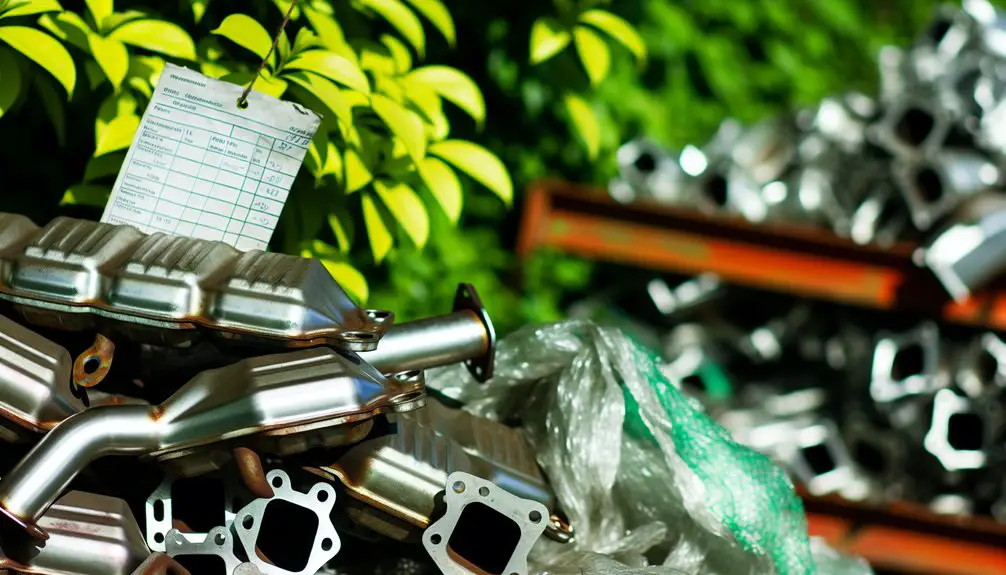
When you're considering scrapping your F150's catalytic converter, think about the environmental impact of recycling.
Proper disposal and recycling not only help improve air quality but also ensure you comply with regulations that protect our planet.
Importance of Recycling Catalytic Converters
Recycling catalytic converters is crucial for both environmental sustainability and resource conservation. When you choose to recycle these components, you actively contribute to reducing waste and minimizing the environmental impact associated with mining new materials.
Catalytic converters contain precious metals like platinum, palladium, and rhodium, which play a vital role in enhancing catalytic converter efficiency. By recycling, you ensure these valuable resources are recovered and reused, rather than discarded.
The recycling processes involved in handling catalytic converters are designed to extract these metals safely and efficiently. This not only lessens the strain on natural resources but also decreases greenhouse gas emissions associated with mining and refining.
You're helping to create a circular economy where materials are continually repurposed, reducing the need for new extraction.
Moreover, recycling supports the development of new technologies and innovations in renewable energy and sustainable practices. By engaging in recycling, you're taking a significant step toward protecting the environment for future generations.
Every catalytic converter recycled is a step toward a healthier planet, showcasing your commitment to responsible resource management and environmental stewardship.
Impact on Air Quality
Air quality significantly improves when catalytic converters are effectively recycled and reused. These vital components play a crucial role in reducing harmful emissions from vehicles, thus directly impacting air pollution levels.
When you recycle a catalytic converter, you help ensure that the precious metals inside—like platinum, palladium, and rhodium—are reused in new converters or other industrial applications. This not only reduces the need for mining but also minimizes the environmental footprint associated with producing new materials.
By promoting emissions reduction through the recycling of catalytic converters, you contribute to cleaner air in your community. Fewer emissions mean less smog and respiratory issues, making it essential for public health.
When more vehicles are equipped with functional catalytic converters, the overall pollutant output decreases, leading to improved air quality.
Moreover, engaging in recycling initiatives fosters a circular economy, which benefits both the environment and the economy. You're not just helping to reduce air pollution; you're supporting sustainable practices that can lead to long-term improvements in environmental health.
Regulations and Compliance Standards
Understanding the regulations and compliance standards surrounding catalytic converters is essential for both individuals and businesses involved in the automotive industry. These regulations are designed to ensure that vehicles meet environmental standards, minimizing harmful emissions and protecting air quality.
When you're dealing with catalytic converters, you need to be aware that regulatory compliance isn't just a legal obligation; it's crucial for sustainable practices. Various federal and state agencies enforce strict guidelines about the manufacture, sale, and recycling of these components.
Failing to adhere to these regulations can lead to hefty fines and damage your reputation.
Moreover, recycling catalytic converters responsibly contributes to environmental sustainability. By following compliance standards, you help reduce the ecological footprint of automotive waste, ensuring that precious metals within converters are recovered and reused.
This not only protects the environment but also creates economic opportunities within the recycling industry.
Future Trends in Scrap Prices
As the demand for precious metals continues to rise, you can expect fluctuations in the scrap prices of catalytic converters, including those from F150s.
Market predictions suggest that these prices will experience significant volatility due to various factors, such as global economic conditions, supply chain disruptions, and technological advancements in recycling.
You might want to keep an eye on the price of platinum, palladium, and rhodium, as these metals are crucial components in catalytic converters. When their prices increase, scrap values typically follow suit.
Furthermore, emerging regulations aimed at promoting eco-friendly practices could drive up demand for recycled materials, influencing future pricing.
It's also worth noting that innovation in automotive technology may impact how catalytic converters are designed and used, potentially altering their scrap value.
Pay attention to trends in the automotive industry, as shifts toward electric vehicles could lead to a decline in traditional catalytic converter demand.
Frequently Asked Questions
How Can I Identify the Catalytic Converter Model From My F150?
To identify your F150's catalytic converter model, check the exhaust system's specifications. Look for serial numbers or labels on the converter itself. This catalytic converter identification helps ensure you get the right replacement or maintenance parts.
Are There Legal Restrictions on Selling Catalytic Converters?
Yes, there're legal restrictions on selling catalytic converters. You must comply with catalytic converter regulations and local scrap metal laws, which often require proof of ownership and proper documentation to avoid potential legal issues.
Can I Sell a Damaged Catalytic Converter?
You can sell a damaged converter, but expect lower offers. During the selling process, research potential buyers who accept such items and be transparent about its condition to ensure a smooth transaction.
What Tools Do I Need to Remove a Catalytic Converter?
To remove a catalytic converter, you'll need a wrench set, a sawzall for cutting, and safety goggles. Understanding removal techniques and tool specifications ensures you can safely and effectively complete the task without damaging surrounding components.
How Often Do Scrap Prices Fluctuate for Catalytic Converters?
Scrap prices for catalytic converters fluctuate frequently due to market demands and catalytic converter trends. By keeping an eye on scrap metal markets, you can make informed decisions on when to sell your converters for the best price.
Conclusion
In conclusion, understanding the scrap value of your 2001 to 2005 Ford F150 catalytic converter can significantly boost your profits. By considering the precious metals involved and market trends, you can make informed decisions on where to sell. Don't forget to clean and document your converter to attract better offers. Staying updated on environmental factors and future trends will also help you navigate this dynamic market, ensuring you get the best return on your investment.
- Ford F150 Shaking When Idling - December 23, 2024
- Ford F150 Timing Chain Replacement - December 23, 2024
- How Many Catalytic Converters Are In A Ford F150 - December 23, 2024




